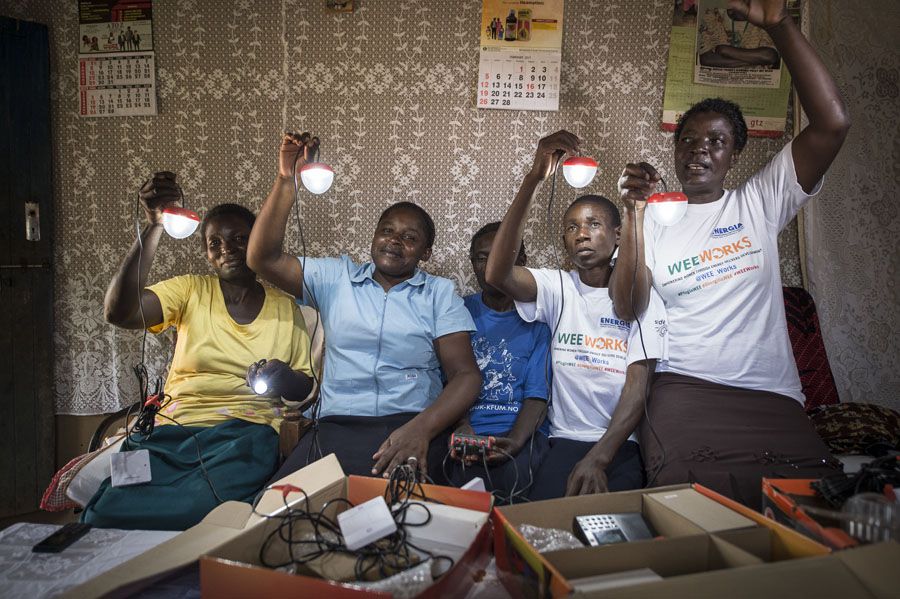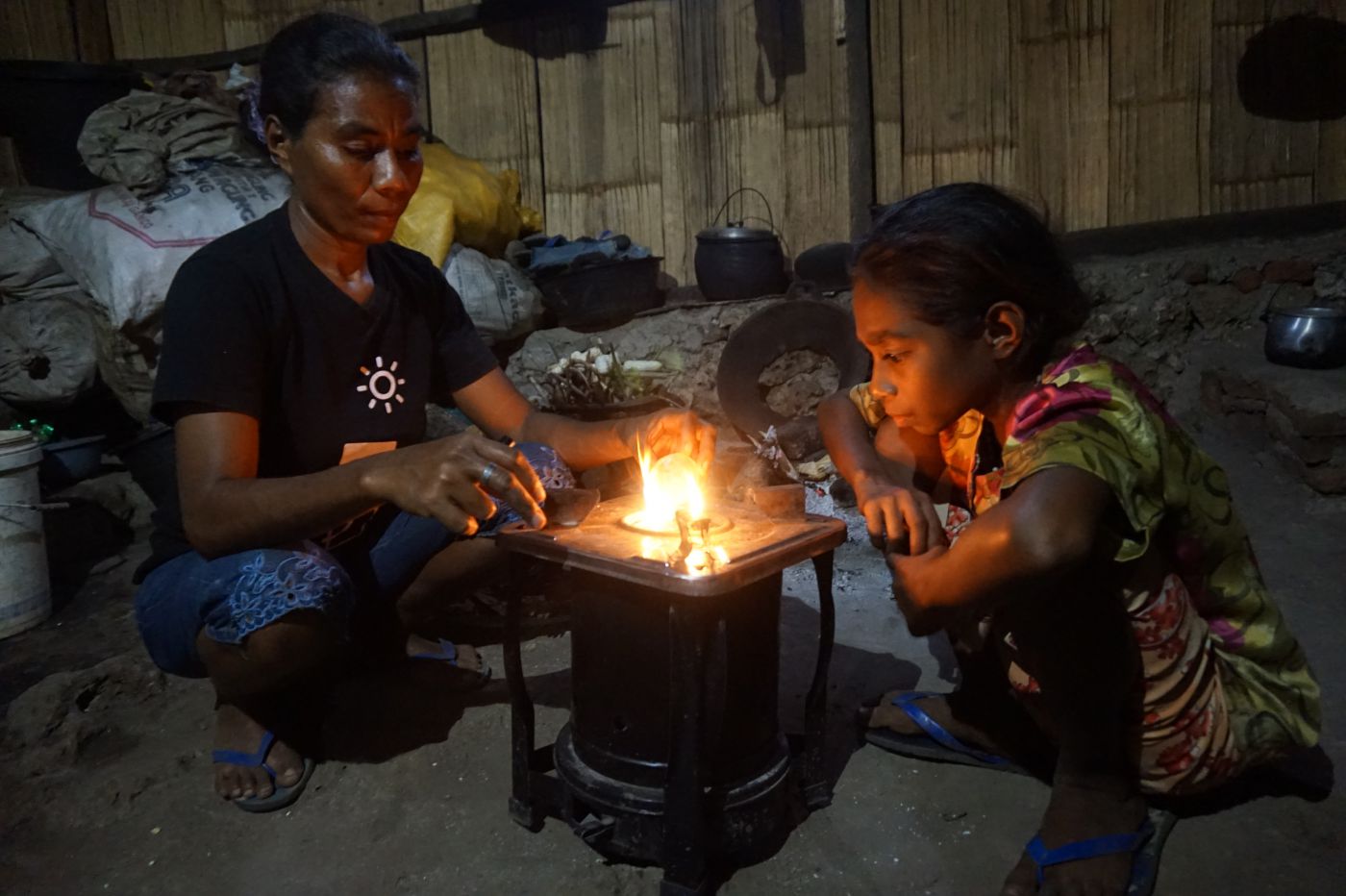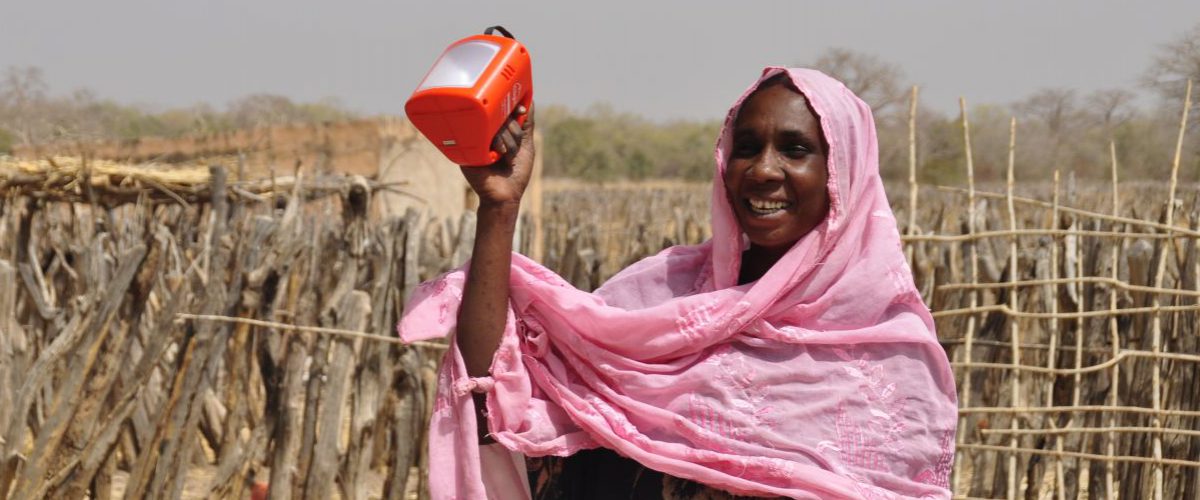Pursuing the goal of universal access to modern energy services by 2030 – while 1.1 billion people still live without energy access, and more than 2.7 billion without clean cooking facilities – requires concerted international effort and a break from business-as-usual. That is precisely what ENERGIA has been doing: building and taking part in international coalitions and developing innovative solutions.Together with our partners in Africa and Asia, we develop programmes and advocate policies and investments that take into account the vital role of women in advancing energy access in hard-to-reach communities. We strengthen women-led micro- and small enterprises in the energy value chains, especially in the delivery of energy products and services. We are thereby scaling up access to energy and helping women to fulfil their potential and advance their rights.
We develop programmes and advocate policies and investments that take into account the vital role of women in advancing energy access in hard-to-reach communities.
The Women’s Economic Empowerment approach
The Women’s Economic Empowerment (WE) approach we have been implementing and promoting involves capacity building, mentoring and other ways of supporting women (and their networks) as energy entrepreneurs. Efforts are directed at supporting women’s energy enterprises and improving the use of energy in women’s businesses through the productive use of energy. The approach is three pronged: enterprise development, addressing women entrepreneurs’ specific constraints, and doing this in a way that empowers the women and builds their agency.
The women-centric “last mile” distribution model for affordable clean energy technologies integrates women in both the supply and demand sides of a thriving grassroots green economy. It combines the best of an enterprise development model with a women’s empowerment model. Starting with almost nothing or a small energy business, many of these women go on to become social leaders in their communities. They are role models for other women in their communities, and showcase how women like them can run successful businesses, and negotiate and advocate for their interests. At the same time, this market-based innovation brings clean energy to rural customers’ doorsteps, where traditional distribution channels have simply not reached.
The women-centric “last mile” distribution model for affordable clean energy technologies combines the best of an enterprise development model with a women’s empowerment model.
We have been supporting a range of activities implemented by our partners in Senegal, Kenya, Tanzania, Indonesia and Nepal. Some examples are presented below.
Senegal: Energy Opportunities for Women
In Senegal, the Energy Opportunities for Women in Senegal (EOWS) project, implemented by Energy 4 Impact, works to develop women’s businesses in the poor district of Tambacounda. In addition to developing women’s energy enterprises based on solar lights and improved cookstoves, Energy 4 Impact also works on energy interventions with Senegalese women’s groups engaged in agriculture and agricultural processing.
For women entrepreneurs, limited access to finance, both for start-up and growth, is one of the largest challenges. To make credit available to the entrepreneurs and to maximise their overall gains, Energy 4 Impact has brought together the private sector and government organisations. One of the financing mechanisms that came out of the partnerships they have forged enables suppliers to sell energy technologies to women entrepreneurs on credit. Energy 4 Impact guarantees the value of those products through a Loan Guarantee Fund set up for this purpose. The suppliers make energy products available for women who must provide 25% of the cost of the product upfront and repay the remaining 75% over a period of 90 days.
Nepal: Promoting Women-led Enterprises for Energy Access and Local Production
In Nepal, the ENERGIA funded project (WEE-Nepal) works directly with community-embedded organisations that purchase electricity in bulk from the grid and retail it to their users within their command area. Working through these Community Rural Electrification Entities (CREEs) enables WEE-Nepal to support women entrepreneurs in distant and remote districts. The CREEs take the leadership in identifying potential women entrepreneurs; steer the training programmes; and make linkages with local financial institutions and government agencies to facilitate loans.
The other component of WEE-Nepal is improved cookstoves dissemination. WEE-Nepal – implemented by the Centre for Rural Technology – Nepal, the National Association of Community Electricity Users Nepal and Practical Action Consulting – has been contributing to the government’s national campaign “Clean Cooking and Lighting Solutions for All by 2017”. They have been promoting a supply system for improved cookstoves with local women as the last-mile supply chain actors. In remote districts, where improved cookstove distribution networks are non-existent, WEE-Nepal develops women as improved cookstoves entrepreneurs through imparting technical, business and leadership skills, and providing support in market development and finance facilitation.

Kenya: Women in Energy Enterprises
Practical Action Eastern Africa is working with women entrepreneurs in seven counties, supporting them in value chains associated with improved cookstoves (ICS), solar technology and biomass briquettes. While some women entrepreneurs work individually or with their families, others prefer to form and work in groups of 12 to 30 members, linking to already existing Village Savings and Loaning Associations.
Marketing their products and going beyond immediate neighbours and friends calls for a systematic strategy. The project uses the Participatory Market Systems Development (PMSD) diagnostic and planning tool that covers three key areas: enabling environment, core value chain and business support services. To increase demand and activate energy product markets, the project uses strategies such as marketing campaigns supported with public open-air demonstrations and facilitating entrepreneurs’ participation in trade fairs and other events.
The project has also facilitated linkages between the entrepreneurs and service providers such as machine fabricators for briquetting machines and suppliers of accredited solar and improved cookstoves brands for the Kenyan market.
Indonesia: Wonder Women
In the country where more than 80 million people live without electricity and almost 100 million rely on smoky, fuel-hungry three-stone fires for cooking, Kopernik Solutions works with ‘ibu inspirasi’, or ‘wonder women’ in English, to develop sustainable supply chains connecting clean energy technology with last-mile communities. The Wonder Women get trained in technology use and maintenance, sales and marketing, bookkeeping, public speaking, and agency and empowerment. Among other things, Kopernik also supports their enterprises in running safe drinking water campaigns in local schools to raise awareness and generate demand for the water filters.
As the women grow more confident and increase sales, they often engage other women and men on a commission basis, which helps them to reach distant markets and create a second layer of women’s economic empowerment. Kopernik has introduced a downline incentive system to encourage such growth and initiative. The wonder women also inspire others through what they achieve – earning money to support their families, gaining new business skills, and gaining confidence in their ability to succeed as micro-social-entrepreneurs.

Tanzania: Solar Sister
Solar Sister focuses on building women-centric entrepreneur networks, working largely in rural areas that traditional energy development approaches have failed to reach. As such, the impacts achieved by Solar Sister are transformative. A recent study by the Global Social Benefit Institute at Santa Clara University found that 97.8% of Solar Sister’s customers in Tanzania were using kerosene before buying a solar product from a Solar Sister entrepreneur. The study further found that 91.6% of the customers who purchased solar lights from Solar Sister were no longer using kerosene.
The impact of these lights does not stop at the household and extends to small-scale businesses in communities. In Tanzania,62% of customers reported using solar products to either start a new business or support an existing one. Solar Sister’s 2016 annual impact report found that 31% of entrepreneurs also reported using solar or clean cooking products to run a business alongside their Solar Sister activities. For example, many customers and entrepreneurs reported that solar lights made it possible for them to increase their income because they could keep their shops open later into the night.
Download our WE Programme brochure – available in print at the SEforALL Forum marketplace – for a more complete overview of Women’s Economic Empowerment activities.







